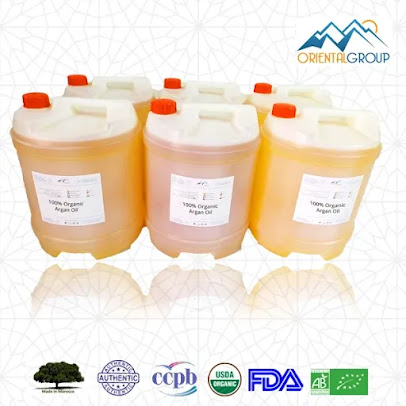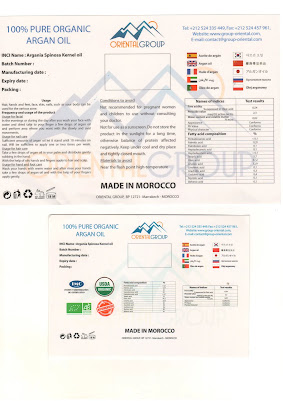Argan Oil in Wholesale
Argan Oil in Wholesale:
Success in Wholesale and
Bulk Argan Oil Sales: A Comprehensive Guide for Beauty and Wellness Markets
Introduction
Argan oil, commonly
referred to as “liquid gold,” has gained widespread popularity in
recent years due to its numerous health and cosmetic benefits. Derived from the
kernels of the argan tree native to Morocco, this versatile oil is utilized in
various industries such as skincare, haircare, and culinary applications. With
the global demand for argan oil on the rise,
the wholesale and bulk
markets present profitable opportunities for businesses seeking to expand their
reach and capitalize on this burgeoning trend. In this comprehensive guide, we
will explore the intricacies of the wholesale and bulk argan oil
markets, discuss their benefits and challenges, and provide tips for success in
these dynamic markets.
1.
Understanding the Wholesale and Bulk Argan Oil Markets
● Market Overview
The wholesale and bulk argan oil markets have
experienced significant growth in recent years, driven by increased consumer
interest in natural, organic, and eco-friendly
products. As the benefits of argan oil become more widely recognized,
businesses across various sectors, including cosmetics, skincare, haircare, and
culinary, are seeking to incorporate argan oil into their product offerings.
● Major Market Players
The wholesale and bulk argan oil markets are
characterized by a mix of producers, exporters, and wholesalers, each with a
unique role in the supply chain. Producers are
responsible for extracting and producing the oil, while exporters and
wholesalers focus on distributing the oil to businesses and retailers
worldwide.
2. Benefits and Challenges
of Wholesale and Bulk Argan Oil Sales
●
Economies of Scale: By
engaging in wholesale and bulk sales,
businesses can take advantage of economies of scale, resulting in lower
per-unit costs and increased profit margins.
●
Access to a Growing
Market: The growing global demand for argan oil offers a lucrative
opportunity for businesses to tap into an expanding market, reaching a wider
range of potential customers.
●
Simplified Logistics: Wholesale and bulk sales often
involve fewer transactions and simplified logistics compared to selling smaller
quantities, streamlining the sales process.
●
Positive Social and
Environmental Impact: Argan oil production plays a
crucial role in supporting local Moroccan communities, particularly women
who
traditionally perform the labor-intensive extraction process. Additionally,
argan tree cultivation contributes to environmental conservation and helps
combat desertification in the region.
●
Challenges
●
Regulatory Compliance:
Selling argan
oil wholesale and in bulk requires
adherence to various international regulations, certifications, and quality
standards, which can be complex and time-consuming.
●
Competition: The
growing demand for argan oil has led to increased competition, with
many businesses entering the market.
●
Limited Production: Argan oil
production
is limited by the slow-growing nature of the argan tree and the labor-intensive
extraction process. This factor can create challenges in meeting the high
demand.
3. Tips for Success in the Wholesale and Bulk Argan Oil Markets
● Source High-Quality Argan Oil
Ensure that
you are sourcing high-quality, pure argan oil from
reliable suppliers. This practice is crucial for establishing a reputation for
excellence in the global market. Look for suppliers that adhere to fair trade
practices and support local communities.
● Obtain Relevant
Certifications and Permits
Obtain
the necessary certifications and permits to comply with international standards
and regulations. These may include organic certification, FDA approval, and
compliance with EU cosmetic regulations, among others.
● Develop Effective
Packaging and Storage Solutions
Proper
packaging and storage solutions are essential for maintaining the quality and
freshness of wholesale and bulk argan oil. Invest in
durable, airtight containers and store the oil in a cool, dark environment to
preserve its nutrient content.
FAQ
1) How can I get samples?
First of all, we are pleased to offer you samples. For new
customers, it should be noted that the postage must be paid, while the samples
are free. These costs will be deducted from the official order payment. As for
the courier costs, it is possible to arrange an RPI (remote pickup) service on
carriers such as FedEx, UPS, DHL, TNT, etc.
2) How does your factory perform in terms
of quality control?
Quality is a priority for our
factory! Every worker ensures quality control from the beginning to the end. For example, all raw materials used
are environmentally friendly, and skilled workers take care of every detail by
hand, whether it is the stamping, printing, sewing or packaging process. In
addition, a quality control department is specifically responsible for quality
control in each process.
3) Can your factory print or emboss my logo
on the goods?
Yes,
we can print your logo on the goods or their packaging box. However, it is
important to provide an attorney letter (letter of authorization) for the logo
in order to comply with patents. Generally, we produce the goods based on the
samples provided by the customers or based on the image, logo, sizes, etc.

Information about :
Follow US:
http://facebook.com/grouporiental







